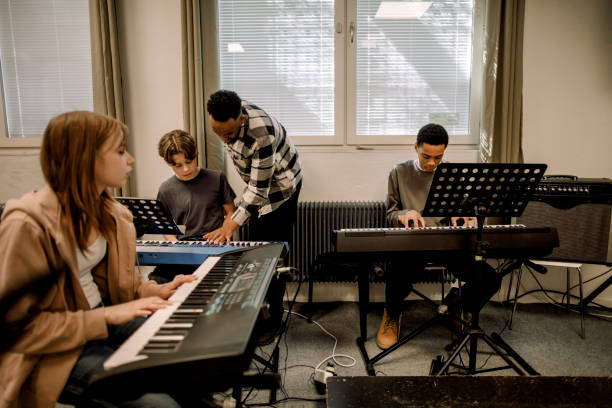Deciding whether to attend music school is a big choice for any aspiring musician. While formal education can provide valuable training and connections, it may not be the right path for everyone.

Pros of going to music school
1. High-quality education and training
Music schools offer structured learning with expert instructors who can help you develop your technical skills, music theory knowledge, and performance abilities. You’ll have access to professional guidance that can be difficult to find elsewhere.
2. Networking opportunities
One of the biggest advantages of music school is the chance to connect with fellow musicians, teachers, and industry professionals. These connections can open doors to collaborations, gigs, and career opportunities in the future.
3. Access to top facilities and resources
Music schools provide access to high-quality instruments, recording studios, rehearsal spaces, and libraries with extensive sheet music collections. These resources can greatly enhance your learning experience.
4. Performance experience
Most music schools offer frequent performance opportunities, whether through recitals, ensemble work, or competitions. This helps you build confidence, gain stage experience, and improve your ability to perform under pressure.
5. Career support and industry exposure
Many institutions have career development programmes, industry workshops, and guest lectures from successful musicians. Some schools also help students secure internships or placements in music-related jobs.
Cons of going to music school
1. High cost
Music schools can be expensive, and not all students receive scholarships or financial aid. If you take on student loans, it’s important to consider whether you’ll be able to earn enough in the music industry to pay them back.
2. No guarantee of success
A music degree does not guarantee a successful career in the industry. Many famous musicians never attended music school, and talent, hard work, and networking often play a bigger role in achieving success than formal education.
3. Limited focus on real-world experience
While music schools provide excellent training, they may not always prepare students for the realities of the music industry. Some courses focus heavily on classical or jazz training but don’t teach skills like marketing, self-promotion, or music production, which are essential for modern musicians.
4. Time commitment
Music school can take several years to complete, during which time you could be gaining real-world experience, performing, or building your career independently. For some musicians, learning on the job and making connections outside of academia may be a better use of time.
5. Competitive environment
Music schools can be highly competitive, which can be both motivating and stressful. Some students thrive in this environment, while others may find it discouraging or creatively limiting.
Music school can be a great option if you want formal training, structured learning, and industry connections. However, if you prefer a more independent approach, there are alternative ways to develop your skills, such as private lessons, online courses, and gaining real-world experience.
Before making a decision, consider your career goals, financial situation, and learning style. If possible, speak to current or former students to get their insights. Ultimately, the best path is the one that aligns with your personal ambitions and aspirations.



